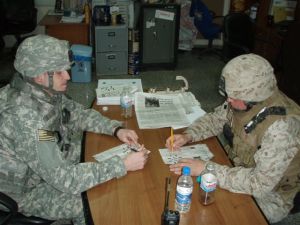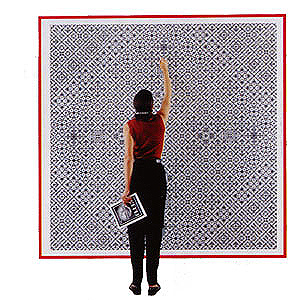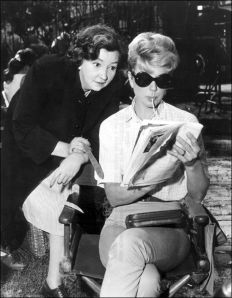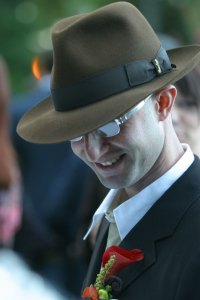 BOOKS
BOOKS In Which We Put You On The Right Literary Track
 Monday, July 6, 2009 at 11:24AM
Monday, July 6, 2009 at 11:24AM 
Summer Reading
by ANDREW ZORNOZA
I'm a habitual self-interlocutor.
Japanese photographer Hiroshi Sugimoto has been photographing seemingly random swaths of oceanscape since 1972.

In the summer we think more about the sea. What else is there to say? Sugimoto divides the landscape right at the vertical midpoint of his photographs, he provides no focal point—these are compositionally crude, a child's drawing without a boat. The photographs are titled simply: Ligurian Sea. Boden Sea, Ionian Sea, North Atlantic Ocean, etc. . . .

Naming things has something to do with human awareness, with the separation of the entire world from you. So with the Seascapes I was thinking about the most ancient of human impressions. The time when man first named the world around him, the Sea…[the Seascapes] all look alike, but they are located at different places in different countries, and the oceans have different names.

But the seas do not all look alike. There is no need for a focal point because none exists. Any part of the sea is as good another to lose yourself in. All that remains the same is Sugimoto's perspective, the viewing angle, the perceived height of the vantage point.

Sugimoto uses an 19th century large-format cabinet camera. The 8 x 10 negatives are easily scarred by static electricity; the ASA speed of the film is tortuously slow.
...but personally I was also concerned with the quality of the photography, traditional professional photography. I didn't want to be criticized for taking low-quality photographs, so I tried to reach the best, highest quality of photography and then to combine this with a conceptual art practice. But thinking back, that was the wrong decision [laughs]. Developing a low-quality aesthetic is a sign of serious fine art - I still see this.

The shutter opens, the sea enters: despite their detail, each image has compressed time, each incorporates a spool of motion into its present tense. Buy it here.
If you are not indoors for the summer, here are some more seas in motion—appropriately pondered from a beach towel:

Self-Portrait with Beach, Frederic Tuten
The beach, the sea, the blue umbrellas. A sail. Then another, like a long arm climbing the horizon. She stretched out on a blanket beside me in the dreadful hot sand.
Tuten, a generous boulevardier and elder statesman of the avant-garde has quietly been assembling a series of self-portraits. Tuten's stories are tender, with an oddly refreshing touch of narcissism thrown in. And always beautifully written. The author's Self-Portrait with Icebergs also makes excellent summer reading, despite the title.

Goodbye My Brother, John Cheever
A must read for anyone trapped on a family vacation — especially those take the extra minute to make sure they have Vampire Weekend on their iPod before they leave for the Cape. First time readers generally sympathize with the narrator and loathe the dour brother, Lawrence. Those who re-read start to see holes in the narrator's story and begin to loathe the unnamed narrator. Those who reread over and over say fuck it and hate Lawrence anyway. Similar to Sam Shepard's True West, and arguably like any brother narrative, this one flirts with schizophrenia. Neither character is real, only Cheever says Thallasa, thallasa and gets away with it. When the women walk naked and unshy out of the sea — all this is playing out inside one bifurcated mind.

The Man Who Lost the Sea, Theodore Sturgeon
The sick man is buried in the cold sand with only his head and his left arm showing. He is dressed in a pressure suit and looks like a man from Mars. Built into his left sleeve is a combination time-piece and pressure gauge, the gauge with a luminous blue indicator which makes no sense, the clock hands luminous red. He can hear the pounding of surf and the soft swift pulse of his pumps. One time long ago when he was swimming he went too deep and stayed down too long and came up too fast, and when he came to it was like this: they said, 'Don't move, boy. You've got the bends. Don't even try to move.' He had tried anyway.
Thomas Sturgeon is undoubtedly an acquired taste, but so is life. Too pulpy for the literati, too silly for those who thought they knew better (with titles like The [Widget] The [Wadget] and Boff; and "If All Men Were Brothers, Would You Let One Marry Your Sister?" who can blame them), Sturgeon is perfect for the beach. If you like the above which you can read here , find “Slow Sculpture.” The latter story contains one of the most imaginative most heartbreaking leaps in all literature with the words: "Come up to the house and I'll fix it."

The Terminal Beach, JG Ballard
Above him, along the crests of the dunes, the tall palms leaned into the dim air like the symbols of a cryptic alphabet. The landscape of the island was covered by strange ciphers.
It is sad that so many young experimentalists of today have fallen under the spell of Barthelme. Ten years ago, it seemed there were many other paths to follow. Calvino, Acker, Ballard.... Now that he is dead, people will miss him.

Some Clouds, Paco Ignacio Taibo II
He was sitting in the last chair under the last lonely palm tree, drinking beer out of a bottle and cleaning the sand off a pile of small shells..."
So opens this Taibo novel, with one-eyed Hector Belascoaran Shayne downing Coronas and waiting for his sister to arrive and shake him out of his torpor.
Belascoaran is one of the great characters in all modern fiction. Too bad, the author, Paco Ignacio Taibo II, is woefully unappreciated here in the United States. Taibo's Belascoaran novels have the proper blend of sex, drama and hijinks to make the hours disappear and spin the mind into a blissfully woozy state of vicarious carpet riding. The gimpy, one-eyed Belascoaran is an aficianodo of carbonated beverages, has an urban geographer's love for "The Monster" (Mexico City) and — pre-craigslist — practically lives in his "office": a rented desk in a room shared with a plumber, an upholster and a sewage engineer. Highly recommended.
Also:

To The Lighthouse, Virgina Woolf

The Tempest, William Shakespeare

The Invention of Morel, Adolfo Bioy Casares

Andrew Zornoza is the senior contributor to This Recording. You can find his website here. You can purchase his new book, Where I Stay, here.

"Stopover Bombay" - Alice Coltrane (mp3)
"Shiva-Loka" - Alice Coltrane (mp3)
"Journey in Satchidanada" - Alice Coltrane (mp3) highly recommended

 andrew zornoza,
andrew zornoza,  jg ballard,
jg ballard,  summer reading
summer reading 



















































